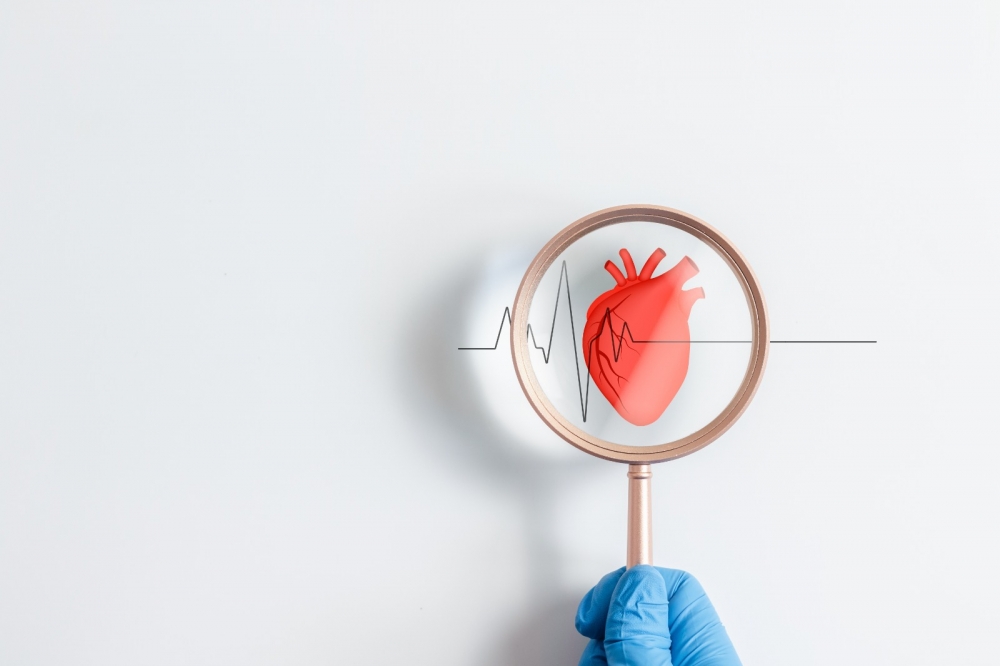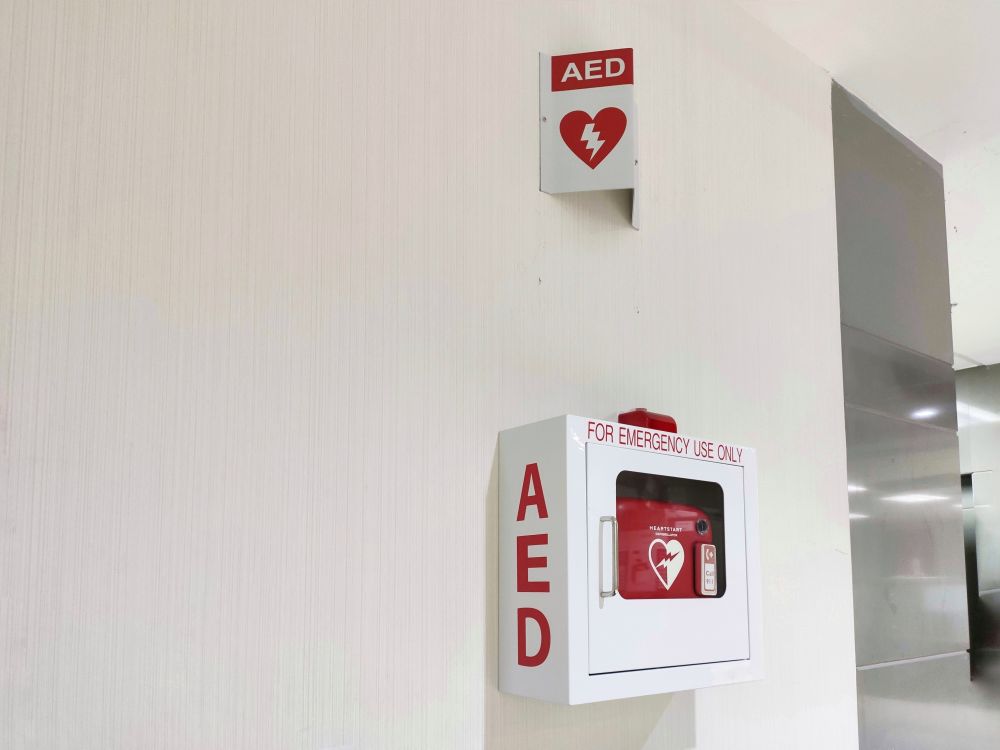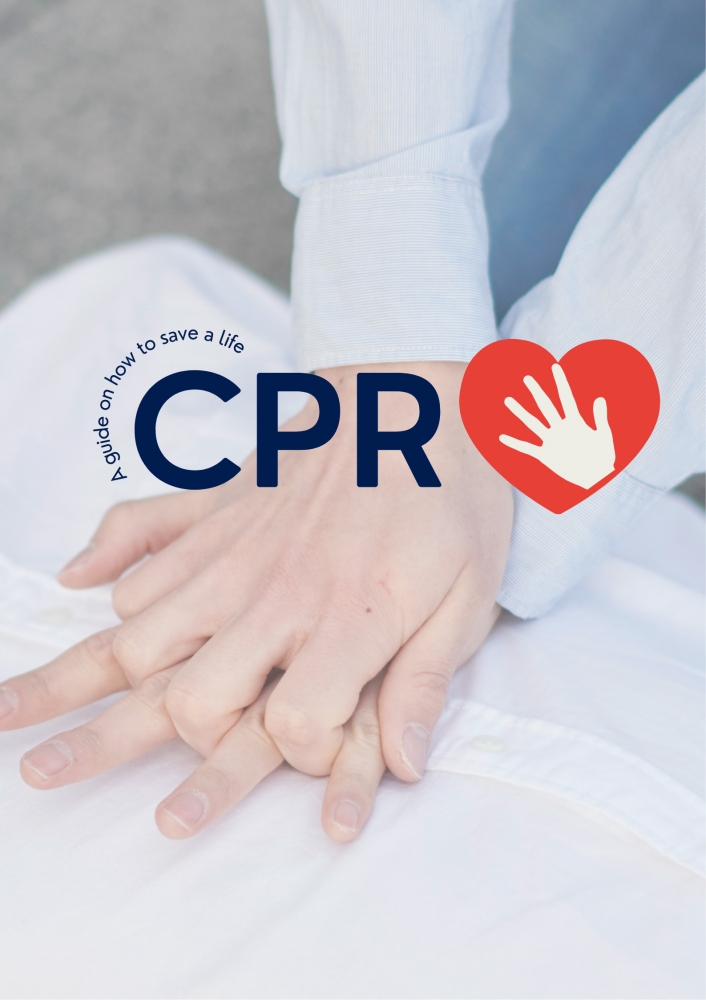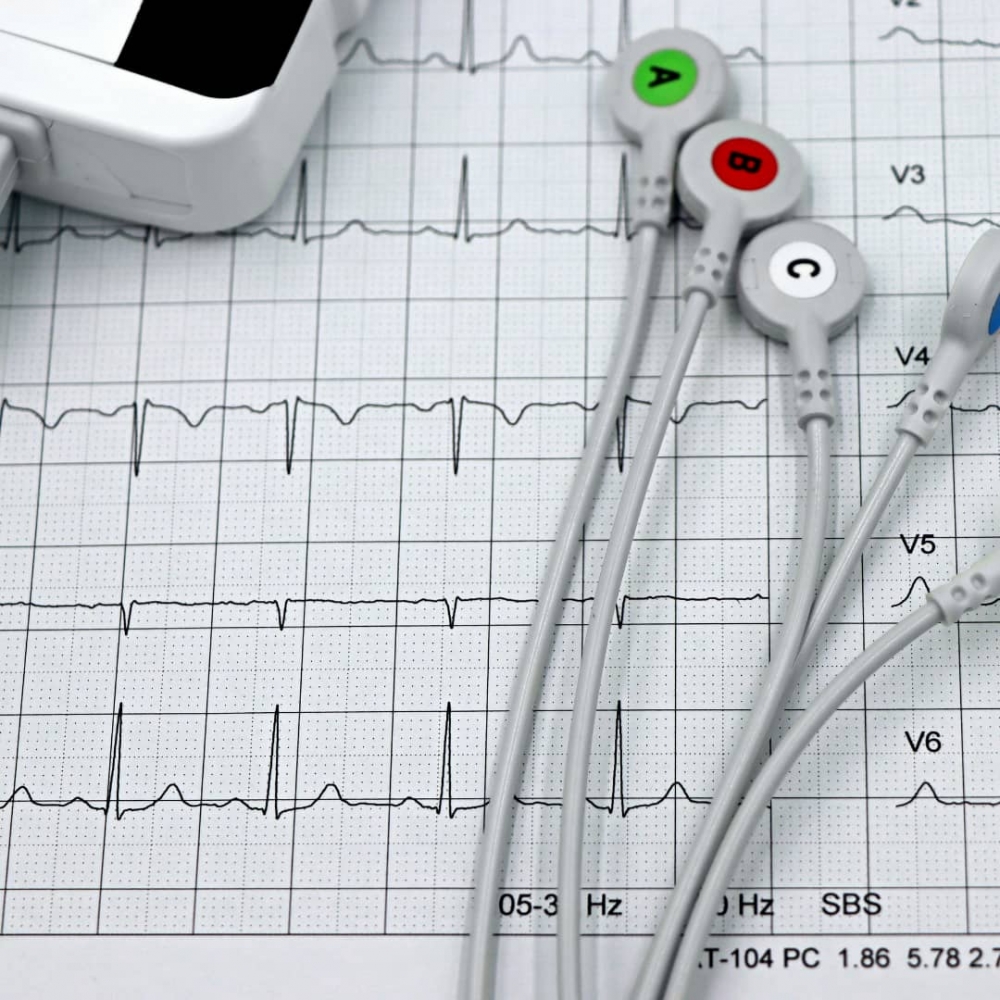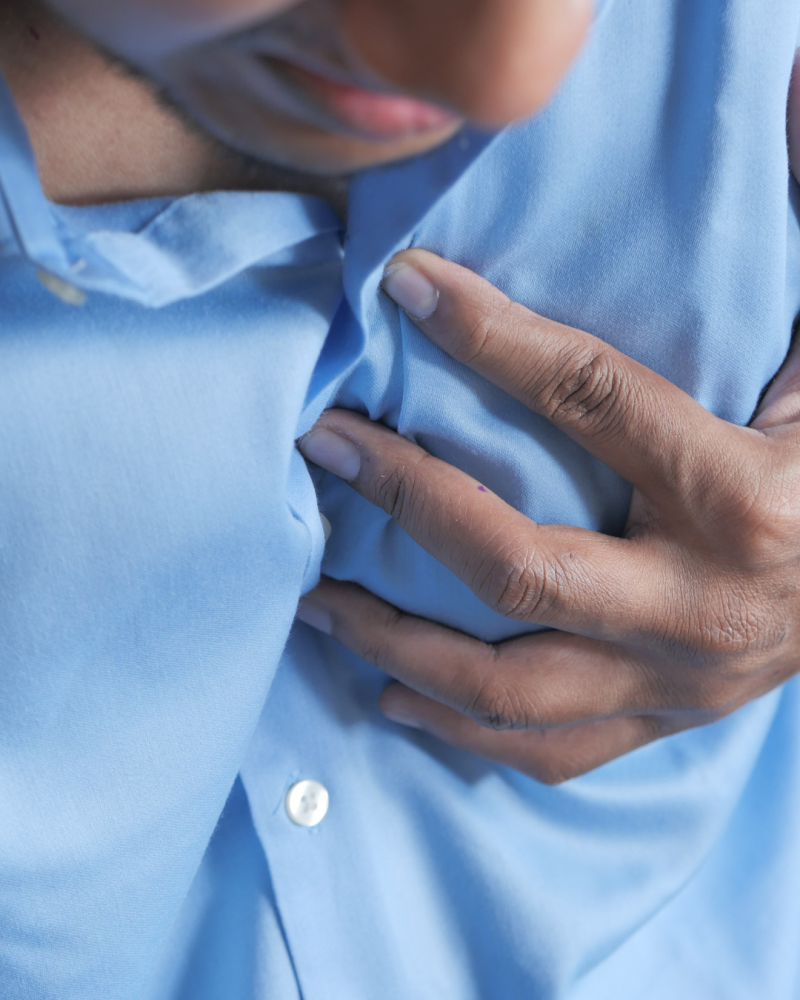Cancer Prevention on Your Plate: What to Eat for Protection
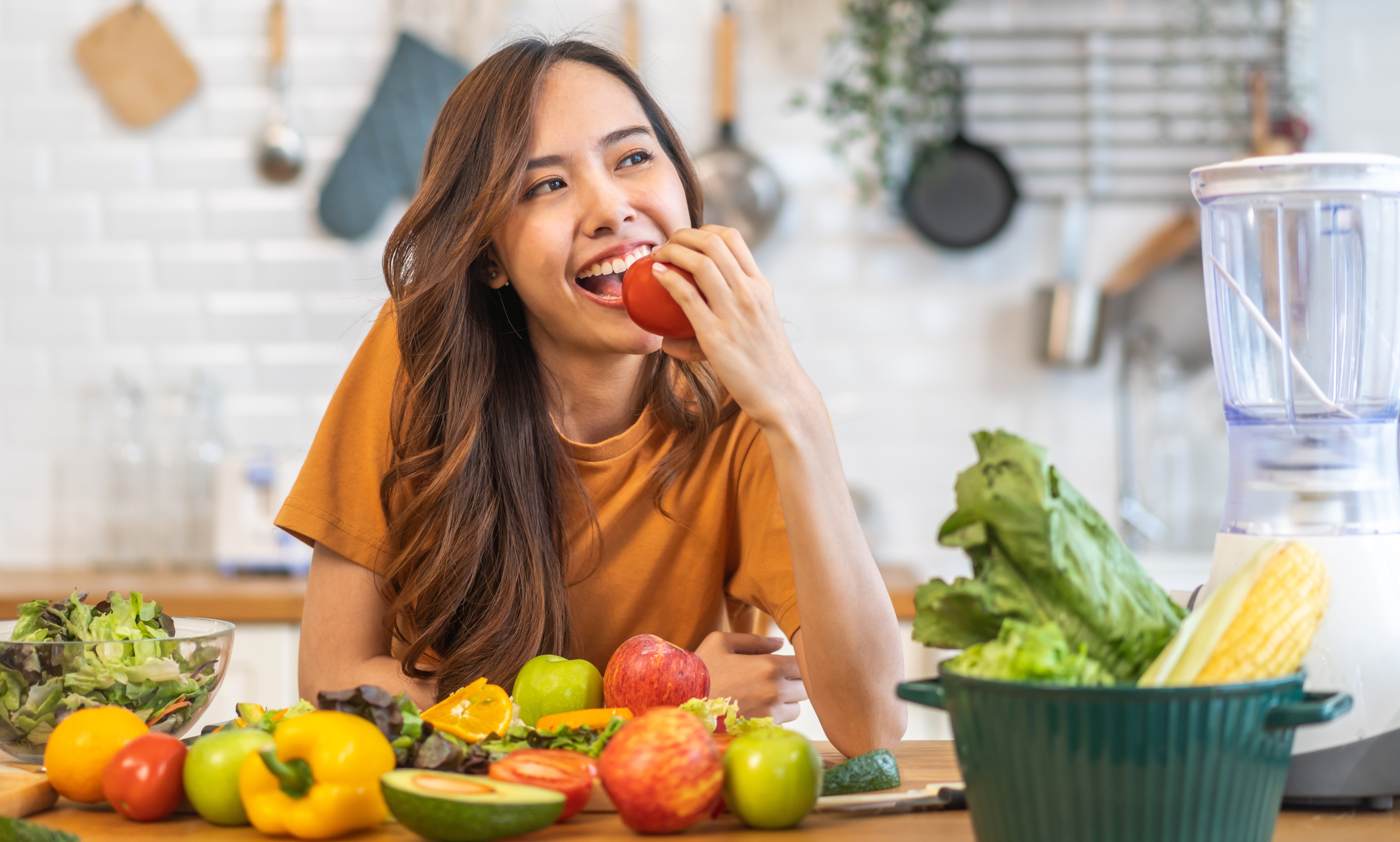
Cancer is a complex disease influenced by a combination of genetic, environmental, and lifestyle factors. While no single food or diet can completely prevent it, research highlights the powerful role of nutrition in reducing the risk of certain cancers such as breast, colorectal, lung and pancreatic cancer. An overall healthy dietary pattern has the potential to lower cancer risk by 10-20%. By adopting informed dietary habits, we can create a bodily environment less conducive to cancer growth. Follow a balanced eating pattern throughout all stages of life to support overall health and reduce cancer risk. Below are key nutritional strategies and food recommendations to help lower cancer risk.
1. Focus on Whole Foods
Whole foods are rich in vitamins, minerals, fibre, and phytochemicals which demonstrates potential anticarcinogenic properties. Incorporate a variety of colourful fruits, vegetables, whole grains, nuts, seeds, and legumes into your meals.
- Cruciferous Vegetables: Broccoli, cauliflower, kale, and Brussels sprouts are high in glucosinolates, which may help reduce carcinogens and inhibit cancer cell growth.
- Berries: Blueberries, strawberries, and raspberries are packed with antioxidants like vitamin C and ellagic acid, which protect cells from oxidative damage.
- Legumes: Kidney beans, chickpeas, lentils, and soybeans, are excellent sources of both protein and fibre, and also provide significant amounts of iron, zinc, potassium, and folate. Their nutritional profile is similar to that of vegetables, making them a valuable addition to a healthy diet.
- Whole Grains: Brown rice, quinoa, and whole-grain bread are excellent sources of fibre, which promotes a healthy digestive system and reduces the risk of colorectal cancer.
Recommended servings per day:
- 3 servings of vegetables (1 serving = ½ cup cooked vegetables or 1 cup raw vegetables)
- 2 servings of fruits (1 serving fruit = 1 medium apple/ orange/ pear/ banana)
- 1 serving of legumes (1 serving legumes = ½ cup chickpeas/ lentils/ mung beans)
- 1 serving of whole grains (1 serving whole grains = 1 slice wholemeal bread or ½ cup cooked brown rice)
2. Maintain a Healthy Weight
Being overweight or obese is linked to increased risk of cancers such as breast, colorectal, and pancreatic cancer. Choose nutrient-dense, low-calorie foods and practice portion control to help maintain a healthy weight.
- Aiming normal BMI between 18.5-22.9 for Asian adults.
- If overweight or obese, aiming to lose 2-4kg in a month via portion control and keep physically active as tolerated.
3. Reduce Red and Processed Meat Intake
Diets high in red meat (beef, pork, lamb) and processed meats (bacon, sausages, hot dogs) have been associated with higher risks of colorectal, lung and pancreatic cancer.
- Limit these foods to 1-2 times per week and opt for plant-based proteins such as beans, tofu, tempeh and lean meats like poultry without skin and fish.
4. Prioritise Healthy Fats
Healthy fats are unsaturated fats such as Omega-3 fatty acids. Include sources of Omega-3 fatty acids, which have anti-inflammatory properties and may reduce cancer risk:
- 2 servings fatty fish (salmon, mackerel, sardines) per week
- 2-3 tbsp chia seeds per day
- ¼ cup walnuts per day
Avoid trans fats and limit saturated fats found in fried and processed foods.
5. Cut Down Sugary Snacks and Beverages
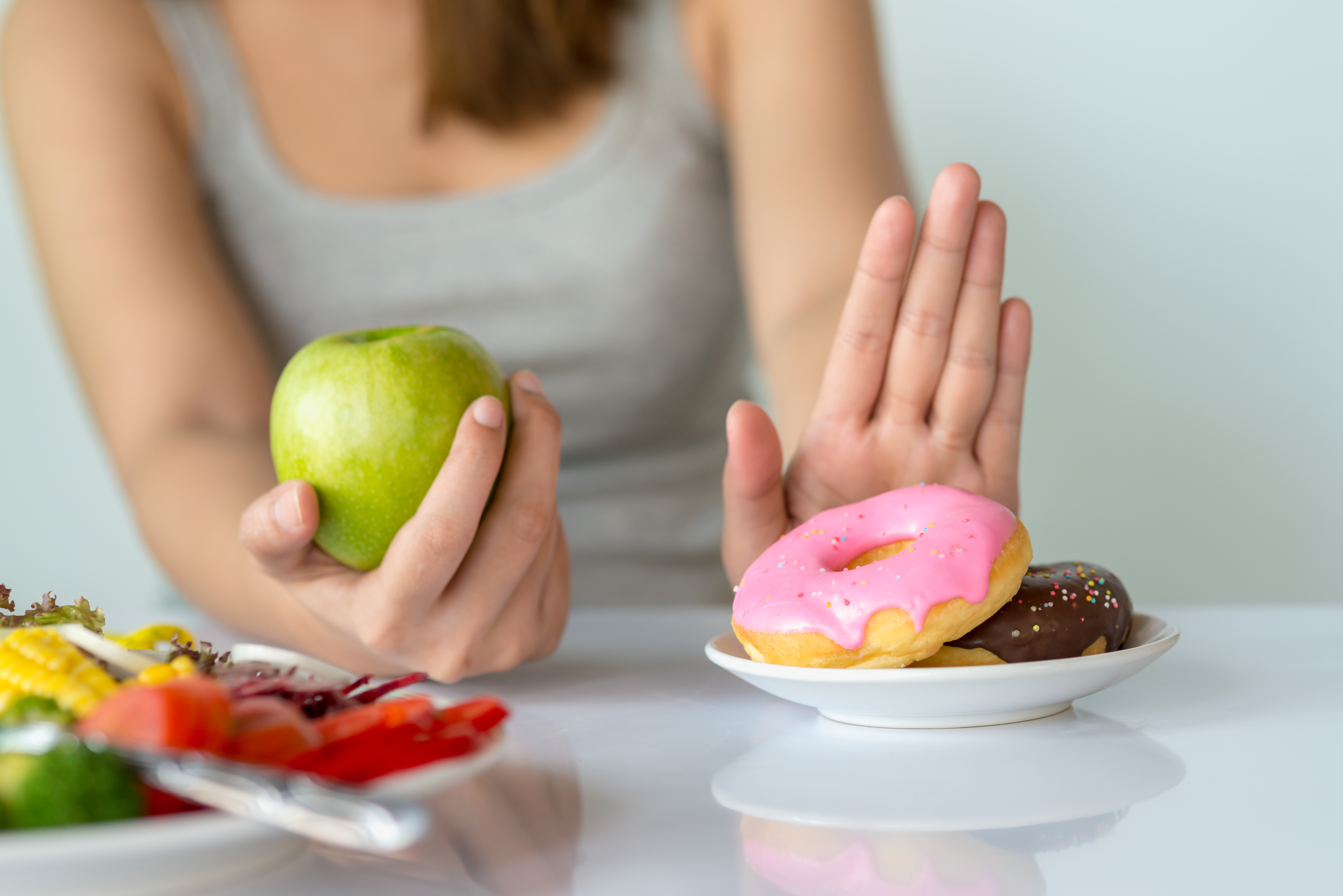
Sugary snacks and beverages often contain high amounts of added sugars and sweeteners like high-fructose corn syrup. Consuming these products are linked to an increased risk of weight gain and obesity, both of which are major risk factors for many types of cancer.
- Replace sugary snacks with natural alternatives like 1 serving of fruit or 1 handful of nuts.
6. Drink to Your Health
What you drink matters as much as what you eat. Hydration supports overall health, but some beverages offer additional cancer-prevention benefits:
- Water: Staying hydrated supports cellular function and detoxification.
- Limit Alcohol Intake: Excessive alcohol consumption increases the risk of cancers like liver, breast, and oesophageal cancer. If you drink, limit intake to one standard drink per day for women and two for men.
7. Be Mindful of Food Preparation
How you cook your food can influence its cancer-preventive properties:
- Avoid charring or overcooking meats, which can produce carcinogenic compounds.
- Steam, bake, or sauté vegetables to preserve their nutrients.
- Use herbs and spices instead of high-sodium seasonings.
Potential Cancer-Fighting Foods
There are also some potential foods which are still undergoing research that might help to reduce cancer risk:
- Green Tea: Contains catechins, which may inhibit cancer cell growth.
- Turmeric: Contains curcumin, a powerful anti-inflammatory and antioxidant compound.
- Garlic: Rich in sulfur compounds that may prevent the formation of cancer-causing substances.
- Ginger: May slow the growth of cancer cells and reduce inflammation.
Tips from dietitian to incorporate these potential foods into your diet:
- Opt for plain green tea as one of the healthier beverage choices when eating out.
- Use natural herbs and condiments such as turmeric, garlic and ginger in your food preparation such as meat marination.
No single food can completely fight cancer - balance and moderate intake are key to preventing cancer!
Diversifying the food choice ensures you get a wide range of nutrients and phytochemicals that work synergistically to protect against cancer. Combine a balanced diet with regular physical activity, adequate sleep, stress management, and avoiding tobacco use for maximum benefit.
返回Suggest to Read
